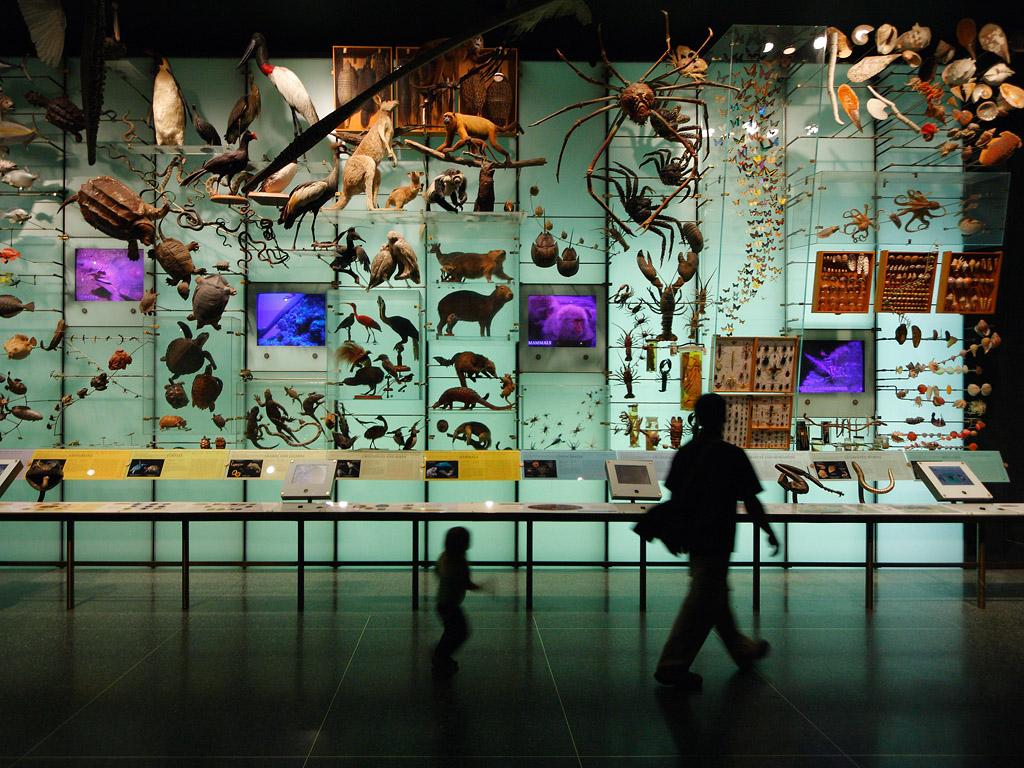In the vast and mysterious expanse of the universe, our planet Earth is a shining gem, teeming with life and interconnected systems that form what we know as a planetary ecosystem. Imagine a delicate web of interactions between living organisms, their environment, and natural processes working harmoniously to sustain life as we know it. Delving into the intricacies of this complex system not only unveils the wonders of nature but also highlights the delicate balance that must be preserved for the well-being of all beings that call this planet home. Join us on a journey to explore the depths of the planetary ecosystem, unraveling its mysteries and understanding the interconnectedness that shapes our world.
Table of Contents
- Understanding the Complex Interactions within a Planetary Ecosystem
- Exploring the Role of Biodiversity in Sustaining Planetary Ecosystems
- Adapting Sustainable Practices to Preserve Planetary Ecosystem Health
- Embracing Technological Innovations for Ecosystem Monitoring and Conservation
- Q&A
- In Summary
Understanding the Complex Interactions within a Planetary Ecosystem
Planetary ecosystems are intricate webs of relationships between living organisms and their environment, encompassing interactions that range from microscopic bacteria to towering trees. Within these ecosystems, various species coexist and rely on one another in a delicate balance to thrive and survive. The exchange of energy, nutrients, and resources forms the foundation of these complex interactions, shaping the environment in which they evolve.
Key Features of Planetary Ecosystems:
- Biodiversity: Planetary ecosystems showcase a rich diversity of species, each playing a unique role in maintaining the ecosystem’s equilibrium.
- Interdependence: Species within these ecosystems are interconnected through various relationships such as predation, competition, and mutualism, highlighting the interdependence that sustains life.
- Adaptation: Organisms within planetary ecosystems exhibit remarkable adaptations to survive in diverse habitats, showcasing the resilience and evolutional dynamics of life forms.
| Ecosystem Component | Function |
|---|---|
| Producers | Convert sunlight into energy through photosynthesis |
| Consumers | Feed on other organisms for energy |
| Decomposers | Break down dead organic matter and recycle nutrients |
Understanding the dynamics of planetary ecosystems provides a glimpse into the intricate balance of nature and the importance of preserving these vital systems for the well-being of all organisms that call our planet home.
Exploring the Role of Biodiversity in Sustaining Planetary Ecosystems
In the intricate tapestry of life on Earth, planetary ecosystems play a pivotal role in sustaining biodiversity. The delicate balance of flora and fauna, from the vast rainforests to the depths of the oceans, is essential for the health and resilience of our planet. Biodiversity, encompassing the variety of life forms and genetic resources, is the cornerstone of these ecosystems, fostering stability and productivity in an ever-changing world.
Within these diverse ecosystems, each species contributes uniquely to the intricate web of life. From the microscopic bacteria in the soil to the majestic predators roaming the savannahs, every organism has a part to play in maintaining the equilibrium of nature. Interconnectedness and interdependence are key themes in understanding how biodiversity sustains planetary ecosystems, highlighting the importance of preserving and protecting these complex relationships for the future of our planet.
| Species | Role |
|---|---|
| Bees | Pollination |
| Wolves | Regulating prey populations |
| Algae | Oxygen production |

Adapting Sustainable Practices to Preserve Planetary Ecosystem Health
In the vast tapestry of interconnected life on Earth, the planetary ecosystem embodies the intricate dance of flora, fauna, soil, water, and air. It is a harmonious symphony of biodiversity and environmental interactions that sustains life as we know it. To comprehend the essence of a planetary ecosystem is to appreciate the delicate balance and resilience ingrained in nature’s design.
Embracing sustainable practices is paramount to safeguarding the intricate web of life within the planetary ecosystem. By nurturing regenerative agriculture, promoting biodiversity conservation, and advocating for clean energy initiatives, we can be stewards of our planet’s health. Each mindful action contributes to the collective effort of preserving the richness of our natural world for generations to come. Together, through conscious choices and holistic approaches, we can coexist in harmony with the diverse ecosystems that shape our global environment.
Embracing Technological Innovations for Ecosystem Monitoring and Conservation
In today’s rapidly evolving world, the integration of cutting-edge technologies has become pivotal in monitoring and preserving our delicate ecosystems. Leveraging advancements in remote sensing, machine learning, and data analytics allows us to delve deeper into understanding the intricate dynamics of our planet’s biodiversity. By embracing these technological innovations, we pave the way for more effective conservation strategies and sustainable practices that support the well-being of both flora and fauna.
Utilizing unmanned aerial vehicles (UAVs) equipped with high-resolution cameras, researchers can now capture detailed images of diverse habitats, aiding in biodiversity assessments and habitat mapping with unprecedented accuracy. Coupled with real-time data processing and analysis, these tools enable conservationists to make informed decisions swiftly and proactively respond to environmental challenges. Embracing such advancements not only enhances our capabilities in ecosystem monitoring but also reinforces our commitment to safeguarding the richness of our planetary ecosystems for generations to come.
Q&A
—
Q: What is a planetary ecosystem?
A: A planetary ecosystem is a complex interconnected web of life forms, natural resources, and environmental factors that interact and support each other within a specific area of the Earth. These ecosystems can range from vast oceans to dense forests and everything in between, encompassing all living organisms, their habitats, and the surrounding physical elements.
Q: Why are planetary ecosystems important?
A: Planetary ecosystems play a crucial role in maintaining a delicate balance on Earth by regulating the climate, preserving biodiversity, providing essential resources such as clean air and water, and supporting various life forms, including humans. They are essential for sustaining life and promoting ecological stability on a global scale.
Q: How are planetary ecosystems affected by human activities?
A: Unfortunately, human activities such as deforestation, pollution, overfishing, and urbanization have significantly impacted planetary ecosystems worldwide. These activities have led to habitat destruction, species extinction, climate change, and other environmental issues that threaten the health and resilience of ecosystems, ultimately affecting the well-being of all living beings on the planet.
Q: What can individuals do to help protect planetary ecosystems?
A: Individuals can contribute to the preservation of planetary ecosystems by adopting eco-friendly practices in their daily lives, supporting conservation efforts, reducing waste, promoting sustainable consumption, and advocating for policies that prioritize environmental protection. Small actions collectively can make a significant difference in safeguarding these vital ecosystems for future generations.
Q: How can we ensure the sustainability of planetary ecosystems for the future?
A: Ensuring the sustainability of planetary ecosystems for the future requires a collective effort involving governments, organizations, communities, and individuals worldwide. By implementing conservation measures, investing in renewable energy sources, promoting sustainable agriculture, and raising awareness about environmental issues, we can work towards preserving these ecosystems for the long term and securing a healthy planet for generations to come.
This creative Q&A aims to provide valuable insights into the concept of planetary ecosystems, their significance, human impact, and ways to protect and sustain them for the future.
In Summary
As we voyage through the vast expanse of the cosmos, the intricate dance of life on different planets continues to astonish and inspire us. The planetary ecosystem, a harmonious symphony of flora and fauna, interactions, and delicate balances, reminds us of the interconnectedness of all living beings within the universe. From the depths of the oceans to the peaks of mountains, each planet holds its own unique ecosystem, sustaining life in its diverse forms. Embracing the wonders of planetary ecosystems leads us on a journey of discovery and appreciation for the marvels of our celestial home. Let us continue to cherish, protect, and marvel at the beauty and complexity of the planetary ecosystems that enrich our existence.



0 Comments